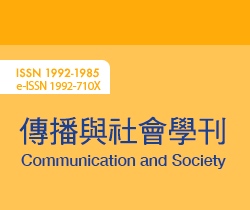 |
| July 2025 |
 |
73 |
|
| 專輯論文Special Issue Articles |
| 世代差異視角下媒體使用偏好與地方政治信任的強化螺旋效應—基於CFPS 2016–2020的追蹤數據分析 |
| Examining the Reinforcing Process of Media Use Preferences With Local Political Trust Across Generations: A Longitudinal Analysis of CFPS Panel Data (2016–2020) |
|
|
|
 |
 (1671)
(1671)
|
| 作者 |
馬鏡涵、李耘耕 |
| Author |
Jinghan MA, Yungeng LI |
| 關鍵詞 |
政治信任、地方政府、強化螺旋模型、媒體使用偏好、世代 差異 |
| Keywords |
political trust, local government, reinforcing spiral, media use, intergenerational differences |
| 摘要 |
媒體使用偏好往往會直接或間接地影響政治信任。雖然已有大量研究關注不同的媒體使用偏好對廣義政治信任的影響差異及其機制,但對於不同世代的媒介偏好與地方政治信任之間關係的歷時性變化研究仍不足,也忽略了考察地方政治信任在長期過程中如何反過來影響媒體使用偏好。本研究借鑒強化螺旋模型的思路,利用中國家庭追蹤調查(China Family Panel Studies, CFPS)於2016、2018、2020年的數據,使用滯後路徑分析的策略,探究了不同的媒體使用偏好與地方政治信任之間的長期相互關係及其世代差異。研究發現,傳統媒體使用偏好與地方政治信任之間存在長期的相互強化關係,說明與開放的傳播系統相比,封閉的傳播系統更有利於政治態度的穩定與強化。政治信任者程度較高者,傾向選擇與身分認同一致的傳播內容,以維持或強化既有態度。數據分析結果表明,青年人的地方政治信任較容易受媒體使用影響;而對中年人而言,其預先持有的地方政治信任,則更可能會產生媒體選擇的效應。至於老年人,其媒體使用偏好和政治信任的互動關係則不顯著。本研究基於差序格局下的政治信任的情境,利用比較與交互的視角,驗證媒體使用與地方政治信任之間長期、綜合、互動的強化過程,及分析不同世代的差異,在中國情境中檢驗及明確了強化螺旋模型的理論命題,和其邊界並擴展了對於理論的解釋。 |
| Abstract |
Political trust plays a crucial role in upholding the political system, and the media exerts both direct and indirect influence on political trust. While extensive studies have discussed the different effects of traditional media and network media on political trust, there is a dearth of research exploring the longitudinal relationships and the intergenerational differences. This study investigates the long-term reciprocal relationship between media use preference and political trust in local government using a three-wave national representative sample from Chinese Family Panel Studies (CFPS) through lagged panel analysis. Results only support the long-term reciprocal relationship between traditional media use preference and local political trust, highlighting that political attitudes are more likely to be reinforced within a closed communication system. High-trust individuals are more inclined to seek identity-consistent communication experiences that sustain or amplify their existing attitudes. The data further reveal the different reinforcement patterns in three intergenerational groups. Grounded in the context of hierarchical political trust, this study adopts a comparative and interactive perspective to validate the long-term, dynamic, and reciprocal reinforcement processes between media use preference and local political trust, as well as their generational differences. By testing the theoretical propositions of the Reinforcing Spiral Model within the Chinese context, it delineates the model’s theoretical boundaries and extends its explanatory power.
本文引用格式:
馬鏡涵、李耘耕(2025)。〈世代差異視角下媒體使用偏好與地方政治信任的強化螺旋效應—基於CFPS 2016–2020的追蹤數據分析〉。《傳播與社會學刊》,第73 期,頁145–177。
Citation of This Article:
Ma, J., & Li, Y. (2025). Examining the reinforcing process of media use preferences with local political trust across generations: A longitudinal analysis of CFPS panel data (2016–2020). Communication and Society, 73, 145–177. |
|
|
 |
| No.74 2025 October |
 |
| No.73 2025 July |
 |
| No.72 2025 April |
 |
| No.71 2025 January |
 |
| No.70 2024 October |
|
